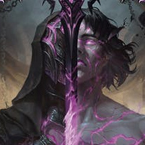On June 5th, players from across Oceania came together in the flesh and blood to find out whose Calling it was to be named champion. For myself and many others, the journey to that mountaintop started from the moment the first spoiler was revealed. Today, I invite you to join me as I share how I prepared and honed my skills, ultimately leading me to a second place finish at the Aotea Center.
Life is filled with opportunity costs. This applies to Flesh and Blood also.
As soon as we knew the schedule, I immediately had to take a few factors into account. How many packs were going to be available to me? Where were the events going to be? Whose schedule aligns with mine?
While Monarch 1st edition was delayed in New Zealand, Unlimited got pushed ahead; so despite the setback, I knew that I would be able to grab a few cases for practice. I also made sure that I preregistered for any limited event that I could go to. I would be able to get my hands on the product I needed to practice- but how could I make the most of this?
Time Management
I work in a Local Game Store (LGS), so I don't share the typical 9-5 schedule that many of my potential testing partners follow. I would have to find other players who had evenings free- but that also meant cutting time from other social responsibilities. None of us play Flesh and Blood in a vacuum; we have friends, families, and obligations. I had to be creative.
With all this in mind, I made a plan. I started with the most obvious: play the game. Clear up my schedule and play.
After that, the most important thing to gain an edge is to learn the format. How does each Hero play? What cards should I keep an eye out for in my pools? What are the dominant strategies in this format? Playing FAB is fun, but this part was the most fun. It was a collaborative effort; we were all exploring synergies, discovering new things, and failing a lot. We'll talk more about the importance of teammates later.
Learn the format. How does each Hero play? What cards should I keep an eye out for in my pools? What are the dominant strategies in this format?
New formats are great, but I needed to do more. The next form of preparation: cracking more packs!
I was fortunate enough to have as much product as I did, but time to actually use those cards was not on my side. I ended up opening packs at home by myself, and building pools I'd never actually use as a mental exercise. I would take photos of them to share with friends or customers the next day, asking their thoughts on how they'd play them.

Interested in an easy way to engage in Limited Practice? Check out the Limited Practice featureset at FaB DB. Easily draft cards in solo or team practice.
Note: Limited Practice requires Majestic tier membership and above.
Around the world, more sealed events occured. The meta was becoming more clear. I had to make the most of the events I played in, using them to try new things and to see if my ideas panned out. The goal in these events was never to win, but to learn. Getting a few extra packs at the end was cool, but if my opponent beat me with something I had not considered yet, that was the reward I was looking for.
I made the most of the events I played in, using them to try new things and to see if my ideas panned out. The goal in these events was never to win, but to learn.
The final step was conversation. I only had so much time to actually play the game- but significantly, I also had access to a large group of people to talk with because of my connections at the LGS. I would have conversations with almost everyone I knew playing in the Calling. I wanted as much information as I could get on how to play the game well, and from many perspectives. This may be one of the most effective ways to learn, as you’re sharing knowledge and making use of not only your time but each other's.
Teamwork Makes the Dream Work
To get the most information for yourself, you’ve got to work with others. Not everyone has access to an LGS full of serious, talented players, but most of you can build a team. The trick here is to find a group that is on a similar wavelength, regarding their goals and mindset towards the game. Everyone is progressing at various stages through the game, and finding people that mesh with your goals may be a challenge. But finding likeminded individuals will allow you all to focus and work together.
To get the most information for yourself, you’ve got to work with others.
You may choose to assign different tasks among the group. For example, you may have some sample sealed pools, and you may recognize each person’s strength in the group, so you can assign various pools to players to work out the strengths and weaknesses of various classes. Maybe assign someone to watch over a game between two others and have open discussions. If your squad is short on time, you can talk over sealed pools without playing them, to have the hypotheticals and the opinions, similar to what I did by myself at home. The saying goes that "Steel sharpens steel". Working with the best players available to you can only sharpen your game.
There's another upside to working in a team. At major events like The Calling, the room is filled with hundreds of people- and yet, it can be lonely at the top. Developing close relationships with others gives you reason to celebrate the success of those around you, even when they do well at your expense. I would not have gotten to the finals of The Calling if it were not for the collective effort of the Wellington FAB community- and players beyond that, many without even knowing it. I will be forever grateful for that.
If At First You Don't Succeed
The first thing I tell people looking to make the jump from playing with friends to playing for prizes is: “Lose. Lose a lot”.
Flesh and Blood is an incredibly intricate game. Each new set is a new puzzle to solve. If you want to do well in this game, you can't afford to be arrogant and not listen to those around you. I want to be clear, I'm not saying that everyone’s hot take is correct, but you have to at least be prepared to be wrong and learn from those around you.
Be prepared to be wrong and learn from those around you.
With a new card pool, you have to take risks. Try out strategies you would not normally pursue, and analyze whether it was worth it or not. It’s much better to learn these things before the actual event.
Be humble in your losses and gracious in your victories. Every interaction- both in game and out- is a chance to grow. Make the most of those.
Work Smarter, not Harder
That piece of advice came from a great friend. They said it about life, but it holds true in this game as well.
Find what works best for you. Come up with a plan that's tenable. Make sure you are fulfilling your needs outside of the game. Ultimately, there is more to life than Flesh and Blood. Look after yourself throughout your preparation.
Create muscle memory plays- strategies and lines of play that you can fall back on when mental fatigue starts to set in. The Calling is a marathon of an event. You do not want to be so fatigued in the finals that your play becomes sloppy (just trust me on this one). Look after yourself.
Make sure you are fulfilling your needs outside of the game. Ultimately, there is more to life than Flesh and Blood.
As I sit here and recount how I prepared for June's Calling, I think about the hours I sank into it, the sleepless nights and sacrifices I made, and about all the people involved. I feel like I’m still recovering from that weekend! But I am thankful for the experience and for the journey. I learned a lot about what I am capable of and built some fantastic bridges along the way. I’m excited for the future of this game and excited to meet you all once we’re able to get international events going!
Next time, I’m going to improve on my second place finish.









